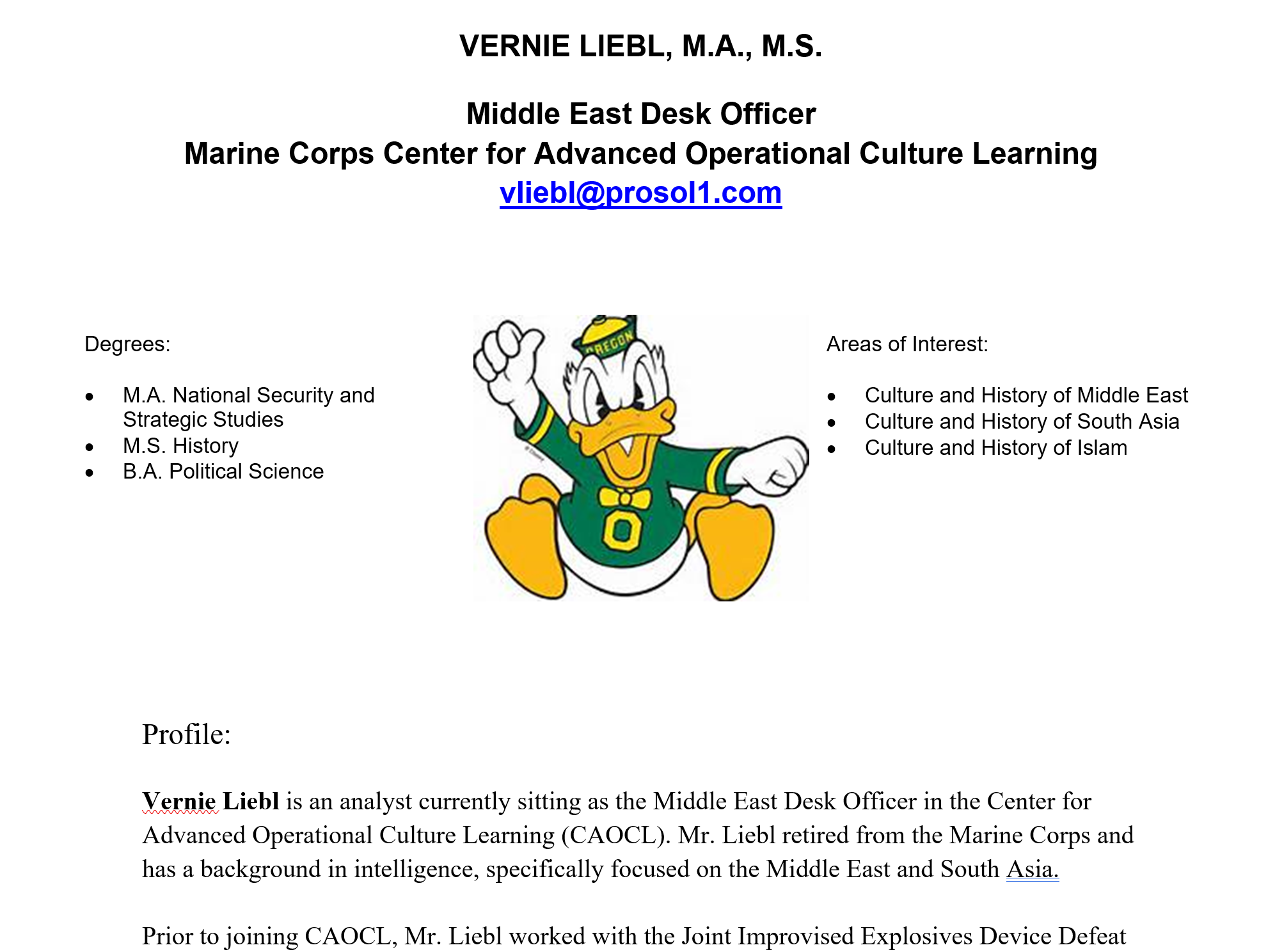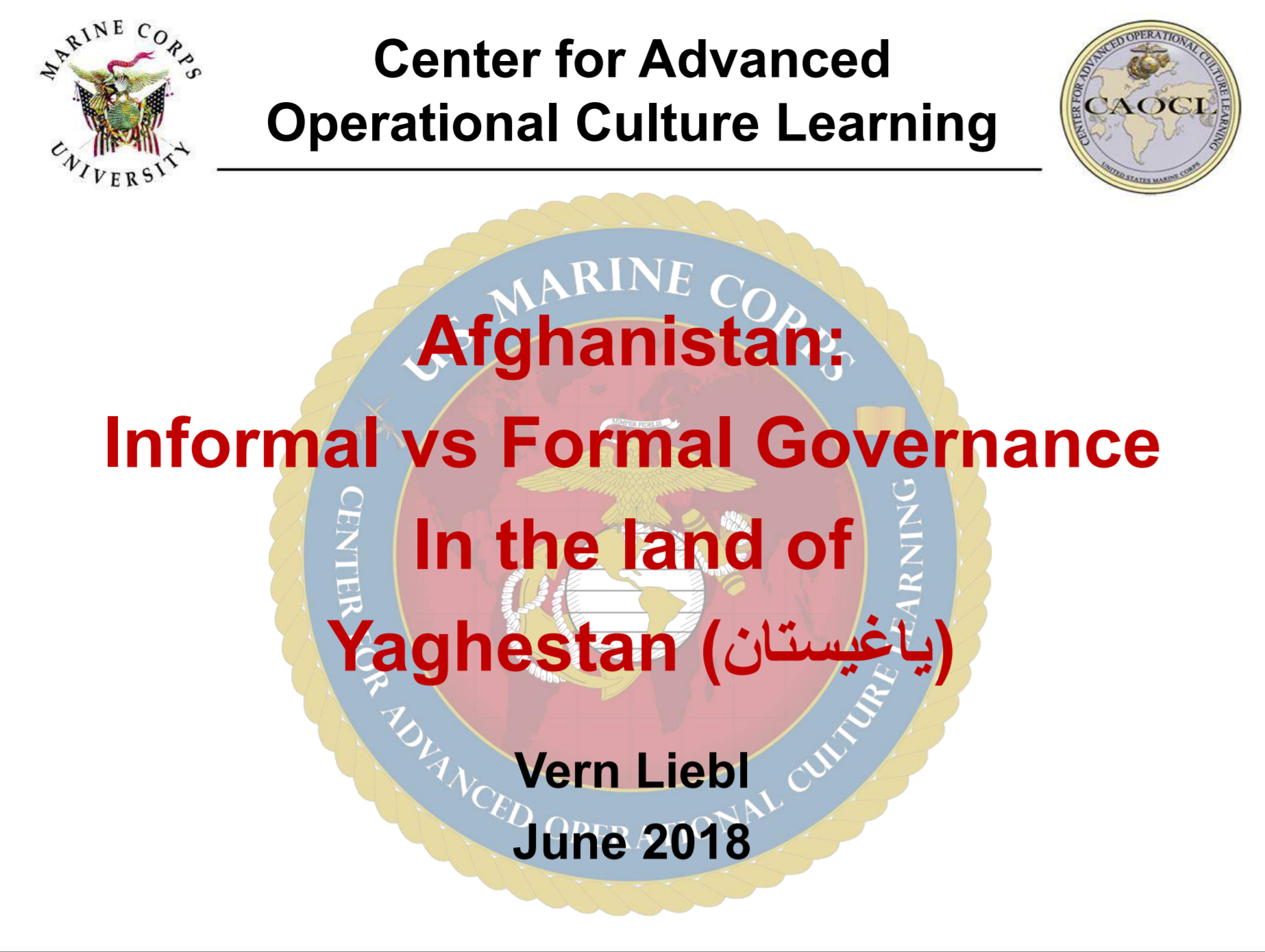Afghanistan – No Ungoverned Spaces Here
Afghanistan – No Ungoverned Spaces Here
Speaker: Liebl, V.
Date: 27 June 2018
Speaker Session Preview
SMA hosted a speaker session presented by Mr. Vern Liebl (Center for Advanced Operational Culture Learning (CAOCL)) as a part of its SMA CENTCOM (Afghanistan) Speaker Series. Mr. Liebl explained that, in Afghanistan, three resources dictate power in Afghanistan: zar (gold), zan (women), and zameen (land). Family and tribal elements, he argues, are the two primary factors that affect informal governance. He also identified the key players in the “village power game” and stated that only two sets of policies can serve the interests of rural people (Islamic-based governance policies and village-based economic policies). Thus, political parties are divided into two major categories (Islamic vs. non-Islamic parties, and pro-rural economy vs. pro-urban economy parties). Mr. Liebl also reviewed the formal governance structure in Afghanistan, discussed the competing elements of Afghanistan’s formal and informal governance structures, and stressed that US policymakers keep in mind where the real governance lies in Afghanistan when making decisions.
Speaker Session Audio File
Download Mr. Liebl’s biography and slides


Comments